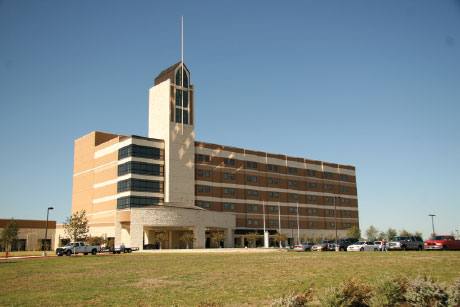In October, Williamson County Commissioners Court approved a plan to collect mandatory payments from local hospitals and health care providers to go toward indigent care, but it could be months before a rate is set, a spokesperson for area health care providers said.
Commissioners unanimously voted Oct. 31 to create a local provider participation fund, or LPPF, into which health care providers would be required to make payments. That money could be used to pay for eligible health care projects, including the costs of uninsured ER patients or preemptive-care services.
By implementing an LPPF, commissioners hope that the programs funded through the fee will help prevent hospital emergency room trips by making preemptive care more accessible or extending clinic hours, Precinct One Commissioner Terry Cook said.
“Whether it’s through our taxes or by [rising prices when] going to a hospital, the rest of us pay for indigent care,” Cook said.
State law allows counties to ask for up to 6 percent of a hospital’s net patient revenue to fund LPPFs, but Williamson County commissioners are holding back from setting a rate until area hospitals and providers come to an agreement amongst themselves, said Carlos Zaffirini, chief executive officer of Adelanto Healthcare Ventures, a consulting company working with the 10 hospitals and providers in the geographic area where Williamson County residents receive health care services.
Zaffirini described much of the discussion among the providers, which is private, as “technical.”
“We are continuing to work on it,” Zaffirini said. “Hopefully, we can have something [and] the hospitals can have consensus in the next couple of months.”
“The local legislators and county have shown tremendous leadership trying to organize what is a very complicated program,” he said. “I am hopeful and confident that the hospitals will come together so we can get this program off the ground as soon as possible.”
Hospitals involved in the discussions include Baylor Scott & White Emergency Medical Center in Cedar Park, St. David’s Round Rock Medical Center and the Cedar Park Regional Medical Center, which is a partner of the Seton Family of Hospitals.
Money paid into LPPFs is eligible for federal matching, and having an LPPF is a way of accessing federal dollars that are already allocated for a region, Zaffirini said Oct. 27 during a commissioners court special session.
The county spends $5.4 million out of the general fund for indigent health care annually, Precinct Two Commissioner Cynthia Long said.
The federal government mandates that patients who show up at hospital emergency departments cannot be turned away, whether they have sources of payment or not, Long said. Hospitals are left to cover those costs themselves.
“Patients and taxpayers benefit when hospitals are able to offset their uncompensated care costs,” Zaffirini said. “The pressure to increase charges [for paying patients] goes down in that situation.”







